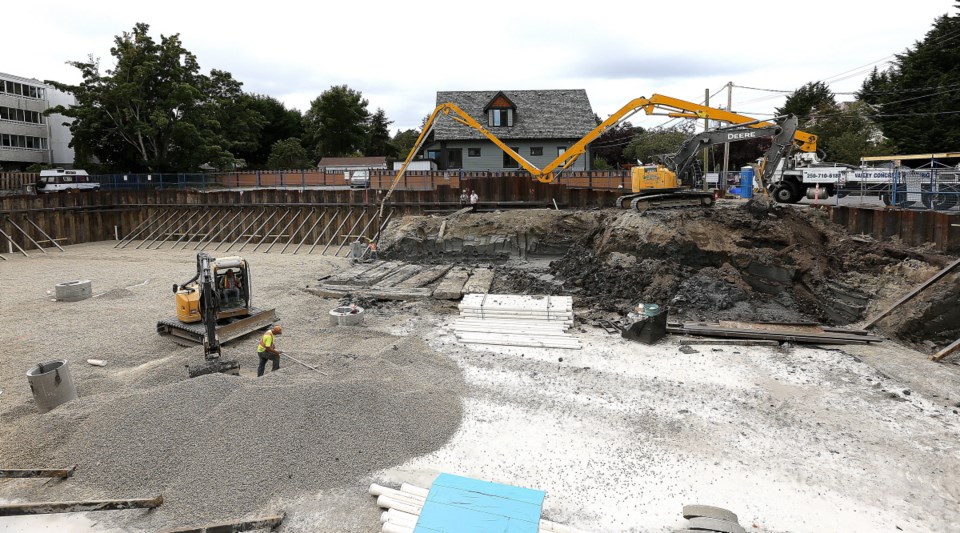Victoria will look at options for financing a system to acquire land for non-market housing.
Councillors endorsed in principle Thursday a land-bank proposal brought forward by Coun. Ben Isitt to acquire land “on a priority basis to facilitate federal, provincial and regional investment in decommodified housing.”
Isitt said the move calls on the city to “step a little outside of its traditional role in terms of basically just being a passive regulator or calling on the province and the federal government to act.”
He said the proposal is for the city to focus on land, “since we are sort of most aware of the most opportunities, the different constraints, the different zoning and other regulations in the community.”
Only Coun. Geoff Young argued against the idea, saying that Victoria should not be shouldering the burden of costs for the region.
“What this motion is saying is that rather than relying on the provincial and federal and regional programs through the CRD that are being developed, we are going to use our resources to get into the business of providing what is one of the most expensive components of new housing, which is the land,” Young said, adding that there are a lot of competing interests for city tax dollars.
Young said while there’s always a temptation to set policy based on existing conditions, the housing market is already changing.
“I predict, frankly, by the end of the new term we’ll all be able to say how successful we’ve been in slowing down the increase in housing prices and increasing vacancy rates — no matter what we do — because, in fact, interest rates are rising and vacancy rates are rising.
“So I think we’ll see a slowing down of the acceleration of housing prices,” Young said.
Mayor Lisa Helps enthusiastically endorsed the idea of a land bank, calling it a “very prudent approach.”
“I think we can’t move quickly enough on this. Yes, it’s going to be an upfront investment, but investments in land will pay back over time,” Helps said.
She said there’s never been more senior government funding available to build housing if the land can be found.
“If we buy land and lease it to a non-profit housing provider or the Capital Region Housing Corp. or whoever to build new housing, we’re still going to own the land and that’s going to be a valuable asset that the city owns over the long term,” Helps said.
Isitt said the idea of a land bank “essentially starts with the premise that we’re not getting to where we need to go for housing affordability based on the current model and that there’s limits to what private investment is going to be able to achieve.”
Isitt said that in the capital region less than five per cent of the housing supply is “decommodified” — built without financial gain as a goal — whereas in the Netherlands it’s about a third of housing and in Vienna, Austria, it’s about 60 per cent.
Coun. Charlayne Thornton-Joe, a past chair of the Regional Housing Trust Fund, said she would support the measure but noted sometimes land isn’t enough. “Often there were times where properties even had land donated, but there were many other aspects of funding needed to make the applications work.”



